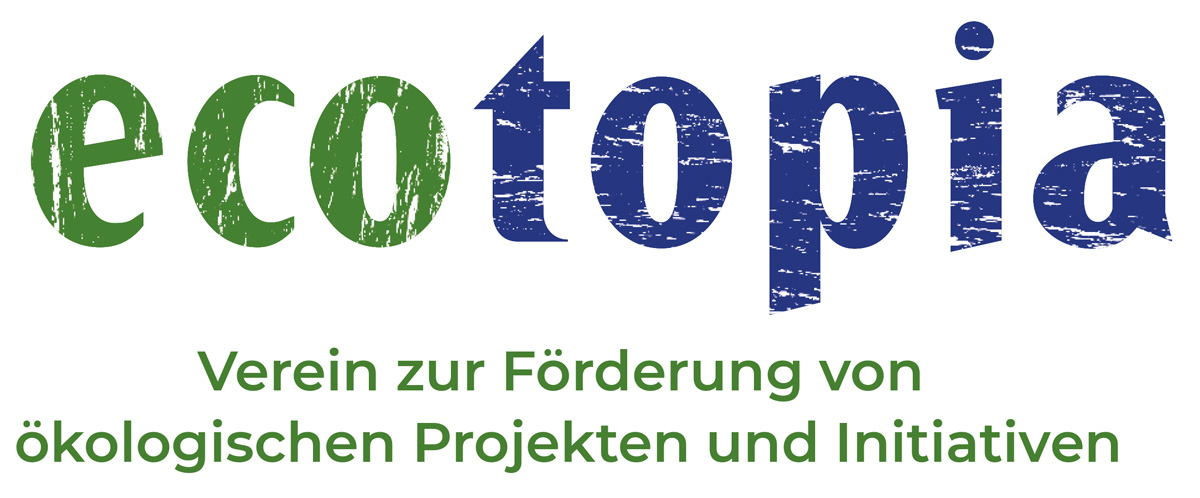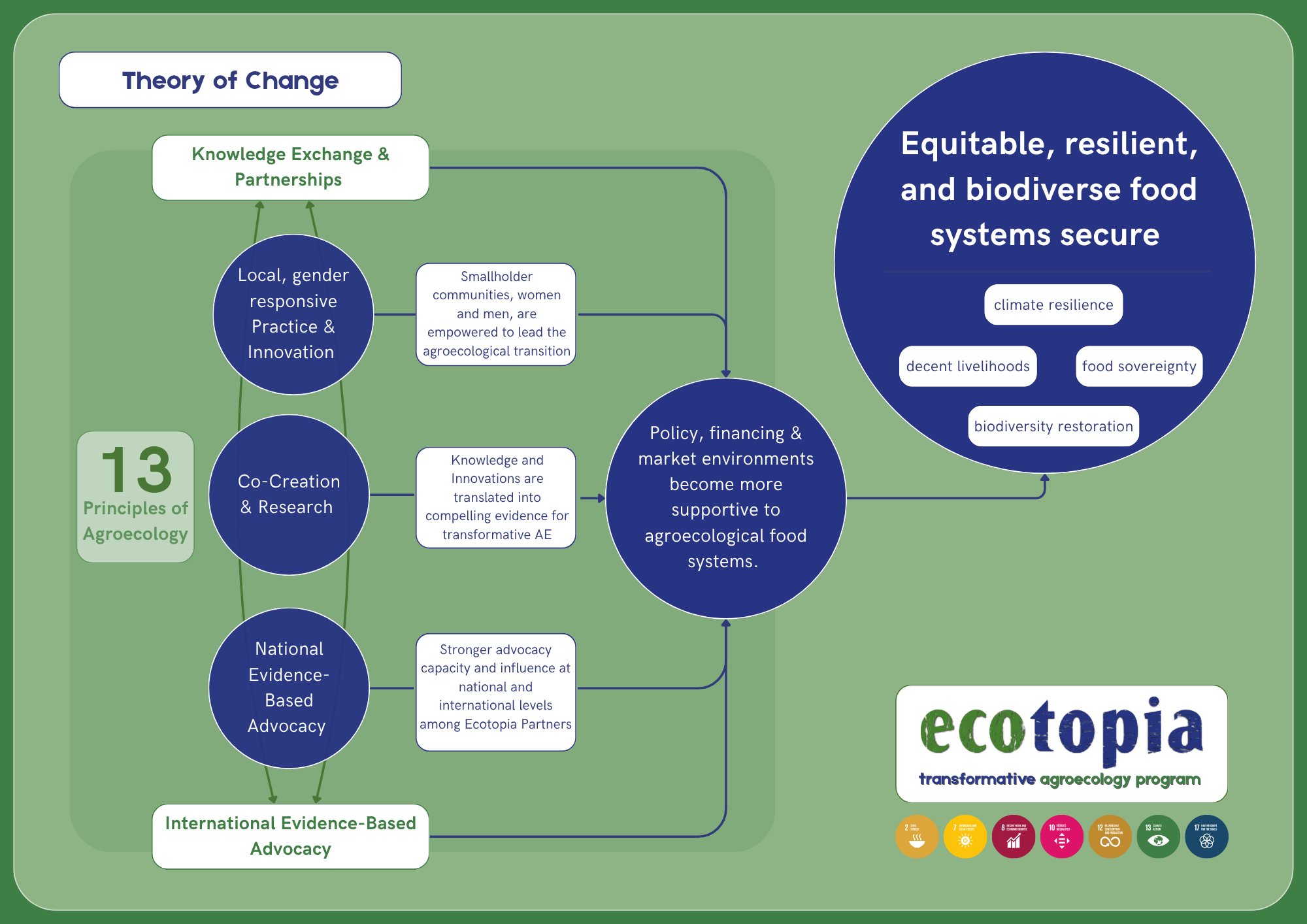13 principles of Agroecology – From local learning to global impact
APPROACH
ECOTOPIA’s participatory methodology is based on the 13 Principles of Agroecology, building on the experience of agroecology leaders in Africa, Asia and Latin America. ECOTOPIA fosters peer learning and collaboration with research institutions to collectively develop a shared understanding and collaboration model for the agroecological transformation, that is climate and gender responsive. Patriarchal norms are challenged, ensuring women and youth have fair access to resources, decision-making power, and the benefits of their labor, while also valuing their traditional knowledge and preventing increased labor burden.
Through continuous participatory action-reflection, the program adapts to new learnings. By strategically linking grassroots projects with inter/national advocacy, the program ensures that pooled evidence from diverse contexts informs global decision-making, aiming for tangible improvements in policy environments on the (inter)national level.
CHALLENGE
Despite agroecology’s widely recognized game-changing potential to transform food systems and address issues like climate change, food insecurity, socioeconomic exclusion and biodiversity loss, it remains underfunded and marginalized in policy discussions.
Smallholder farmers, particularly women and youth, are excluded from resources, decisive conversations and face additional intersectional barriers like insecure land rights and time poverty. This lack of support and representation, combined with limited knowledge exchange and fragmented agroecological movements, hinders the widespread adoption of transformative agroecological models.
WHY AGROECOLOGY?
Agroecology is a holistic, rights-based approach to food system transformation, understood as a practice, a science and a social movement.
Based on the 13 Principles of Agroecology, it considers not only the ecological aspects of farming, but also the social, economic and political factors.
It empowers communities by promoting seed sovereignty, farmer-led research and inclusive governance. ECOTOPIA adopts this framework to ensure that its interventions are transformative rather than merely incremental, creating systems that are resilient, equitable, and environmentally sound.
SHARED UNDERSTANDING
A common understanding of agroecology is crucial, as it is a complex concept that deliberately lacks rigid indicators. By focusing on the 13 principles, a recognized common denominator for transformative agroecology, ECOTOPIA establishes common ground that extends beyond farm level. This also requires consistently demonstrating how patriarchal norms directly undermine key agroecological principles, and that gender equality is a foundational requirement for its success.





